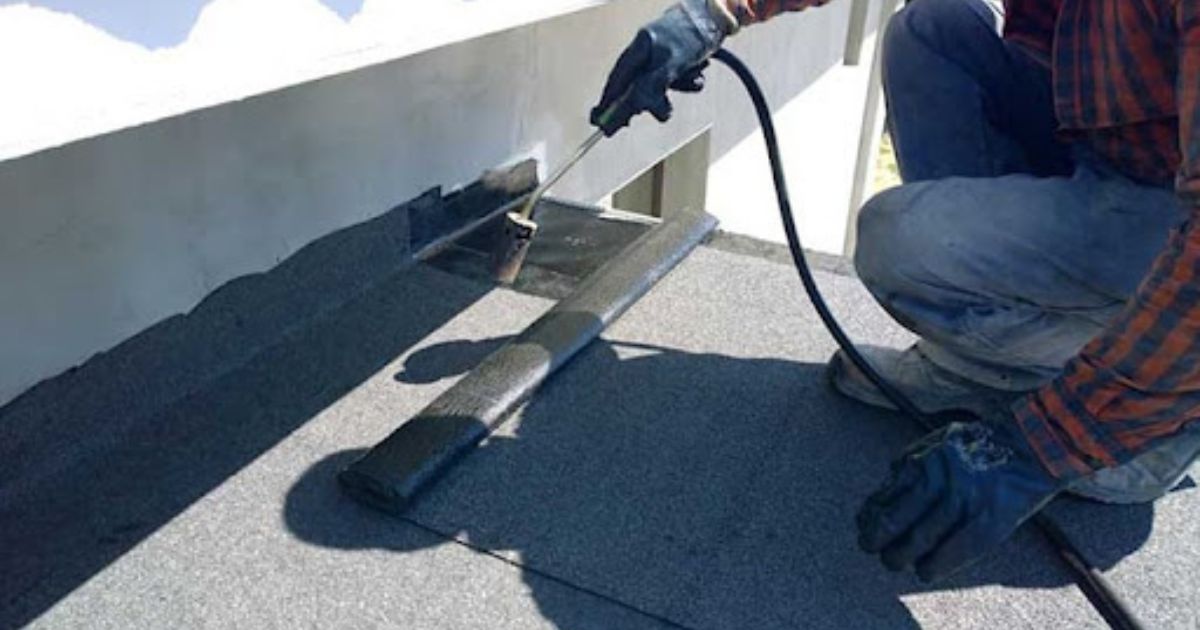Waterproofing is an essential part of any building project. Whether you are constructing a new home, a commercial building, or a pool. There are several Benefits of Waterproofing & it is a crucial aspect of construction that protects the building from water ingress and helps to maintain its structural integrity. The roofs, bathrooms, kitchens, external walls, balconies, basements, and swimming pools are such structural elements which essentially require waterproofing. There are several waterproofing techniques available in the market, and choosing the right one depends on various factors such as the type of structure, budget, and the level of water exposure. In this blog, we will discuss some of the waterproofing techniques available in the market.
Benefits of using Waterproofing Techniques :

-
Sheet Membrane:
This type of waterproofing is characterized by the installation of a large sheet of durable material -mainly plastic, that covers entire roof or basement. Sheet membrane is great for sloped or flat roof applications, and prevents water from entering your home or building at all points. This technique tends to cause cracks and leakages due to weather changes.
-
Liquid-Applied Membrane:
This is most widely used technique, which involves applying a liquid material to roof, walls or foundation. It dries quickly and provides an effective barrier against water damage that can last up to 20 years. Liquid-applied membrane is a monolithic liquid-based coating suitable for waterproofing applications. The coating cures to form a rubber-like elastomeric waterproof membrane and may be applied over many surface, including asphalt, bitumen and concrete. The elongation properties of this method are very high which take cares expansion and contraction of structure due to atmospheric temperature variation hence able to prevent water ingress for a longer duration.
-
Cementitious Waterproofing:
This technology uses cement based compounds which forms a barrier between the concrete and any external fluids that may penetrate into it. This makes it great for indoor floor spaces like bathrooms and basements, as well as exterior surfaces like walls and balconies. This method doesn’t go through the expansion & contraction process because it is not exposed to weathering and sunlight.
-
Bituminous Waterproofing Membrane:
In this technique membrane is made of bitumen and is applied in multiple layers to provide a waterproof layer on the surface. This technique is commonly used in basements, and underground structures. They tend to crack and cause leakages due to weather changes. They may melt/loosen during the summertime and harden during winter time which leads to possible cracks.
-
Bentonite Waterproofing:
Bentonite waterproofing is a natural waterproofing technique that involves applying a bentonite clay layer on the surface. Bentonite is a natural clay that swells when exposed to water, creating a waterproof barrier. It has limited options for future repairs or replacement.
-
EPDM Membrane:
Ethylene Propylene Diene Monomer (EPDM) is a synthetic rubber membrane that is highly resistant to water and weathering. However, it is relatively expensive compared to other waterproofing techniques, can be easily damaged and it gets shrink over the time.
Elephant Shield - Liquid Rubber is India's most unique, easiest and durable Waterproofing, Corrosion Control & Chemical Protection System - a breakthrough technology from CANADA. It is a Single Compound Multi-Use, Multi-Surface, Multi-Area and Multi-Application Solution that offers incomparable advantage over all other existing products. It is stretchable upto 950% & has UV stability & flexibility that can flex with the structural compaction and expansion without being brittle. This makes it a truly genius protection compound. It can be easily applied on any surface without primer and No blending is required.
To sum up, Choosing right waterproofing solutions technique depends on the type of structure, level of water exposure, chances of damage, possible sources of water leakages like construction joints, conduits etc. Waterproofing increases your house’s value, which is the biggest advantage. Hence it is essential to choose a reliable and experienced waterproofing contractor to ensure that the waterproofing is done correctly. A good waterproofing job can not only save lot of money and headaches in the long run, as it helps to prevent structural damage and maintain the building's integrity.

